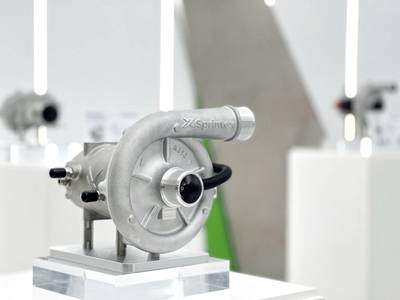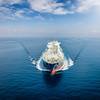Sprintex Delivers Compressors for Billion Dollar Project
Australian company Sprintex has supplied a critical component to the US$15 billion EU Sustainable Hydrogen-Powered Shipping Project (sHYpS), involving 13 partner companies in six countries, which will convert six cruise ships to be powered by hydrogen fuel cells.
Each vessel will be equipped with around 100MW of electrical power, derived from modular hydrogen fuel cells. Sprintex has delivered high-speed electric compressors which are essential for the overall efficiency and performance of the fuel cell systems, as the hydrogen feedstock needs to be at a specific pressure for efficient and optimal performance.
Sprintex secured an initial order of its S26 fuel cell compressors from the UK-based company Ricardo and expects to generate revenue of US$1 million from the deal.
“Our fuel cell compressors have been tested against other units and are smaller, lighter and more power-dense, and we’re now becoming the preferred choice in a range of industries including maritime and the aviation and aerospace sectors, along with the wastewater industry,” says Sprintex CEO Jay Upton.
The total value of world shipping trade is valued at US$13.5 trillion and the global cruise industry is valued at US$7.7 trillion. “The cruise and shipping industry's journey toward decarbonization is non-negotiable, and the sHYpS project will drive us towards a more sustainable and environmentally responsible future for the maritime industry."
The hydrogen fuel cell systems can be stored in standard 40-foot shipping containers. The hydrogen fuel supply for these modular systems will also be supplied, transported and stored (cryogenically) in 40-foot shipping containers, putting the same flexibility in to refueling and distribution of the fuel supply by container ship to any port, he said.
“This also eliminates the need for any new or additional infrastructure to allow these hydrogen powered zero emission liners to operate any route worldwide. So, a cruise line can have these containers with the fuel cell systems on standby in a port of their choice and then just swap them out like battery packs.
Upton says successful implementation of hydrogen-powered ships in the sHYpS project can serve as a model for scaling up hydrogen technology in the shipping sector worldwide, along with other industries. “The cruise and shipping industries need to get to net zero, and this is how it can be achieved.”












